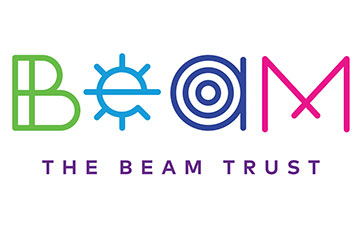English
"The more that you read, the more things you will know. The more you learn, the more places you'll go!" Dr Seuss
"Writing to me, is simply thinking through my fingers." Isaac Asimov
At Oughtrington Primary School we promote high standards of language and literacy by working with pupils to help them to speak well, write proficiently and develop a love of literature through reading for enjoyment. We follow the 2014 National Curriculum for English using the ‘Literacy Counts’ read to write scheme to support our planning and assessment. Our aim is to encourage our pupils to reach their potential and aspire to greater heights.
Speaking and Listening:
Spoken language is important to the development of our pupils across the whole curriculum. It underpins the development of reading and writing. The quality and variety of language that pupils hear and speak is vital in developing their vocabulary, grammar and understanding for reading and writing. At Oughtrington, we ensure pupils continually develop confidence and competence in spoken language and listening skills, not only in English but across the whole school curriculum. Children are supported to develop their ability to discuss their ideas and opinions with others. They learn to explain their understanding of books and other reading and to use the conventions for discussion and debate to develop their understanding across the curriculum.
Drama is used across the curriculum as a way of developing children’s speaking and listening skills. Children are given opportunities to improvise, devise and script drama for one another and a range of audiences. Children have opportunities to perform during the KS1 Christmas Production, Harvest festival, PAN Arts Performance and Year 6 End of Year Production, which are highlights of the school year.
Writing in the classroom:
Our Primary English curriculum places high quality children's literature at its core and is designed to develop a life-long love of reading and writing. We work in partnership with ‘The Literacy Counts’ scheme and have a book-based approach to all our English lessons from Reception to Year 6. Through fantastic texts, children explore language, stories, and ideas. Reading and writing take place every day within the classroom.
Spelling and handwriting:
Pupils are taught phonics in EYFS and Key Stage 1, using the Read, Write Inc scheme to support their spelling and reading skills. From Year 1 to Year 6 children learn the rules of spelling and the conventions of grammar through a structured and progressive programme of lessons using the Edshed spelling scheme. Children are also able to practice their spellings weekly at home using the online Spelling shed app.
A consistently high standard of presentation and handwriting fosters a sense of pride and respect in children’s work. Self-esteem is raised when children are able to communicate meaning accurately. Handwriting is taught discretely so that children can achieve a neat, legible style with correctly formed letters. Wherever possible, handwriting is linked to spelling patterns and phonics to support learners with dyslexia and other literacy needs.
Reading
Reading at Oughtrington aims to ensure all pupils develop a love of reading, can read easily, fluently and with good understanding of a wide range of texts. Pupils learn to pronounce unfamiliar printed words (decoding) and recognise familiar printed words. For phonics and reading in EYFS and KS1 we use the Read, Write, Inc. programme. Please follow the link below for a more detailed explanation of the Read Write Inc. programme.
Following on from Read, Write Inc. we use Steps to Read. This is a shared reading teaching tool that allows reading to be taught on a whole class basis. The texts are high quality and stretch all children to develop their reading skills. Reading Plus, an online reading program, which is proven to improve children's reading fluency, vocabulary and comprehension, is also regulary used in Year 6 both in class and at home.
What is Read Write Inc. Phonics?
Comprehension skills are developed during weekly discussions with the teacher and pupils in shared, guided or individual reading sessions. These activities allow the children opportunities to respond to texts they have read themselves or texts, at a higher level, that they have listened to. All pupils are encouraged to read widely across both fiction and non-fiction to develop knowledge of themselves and the world in which they live.
We aim to foster a love of reading by promoting good reading role models and celebrating reading with events such as World Book Day. Reading for pleasure is promoted throughout the school with pupils encouraged to read from a wide range of banded and ‘real’ books in class and to visit our well-stocked library to read and borrow books. We hold regular Book Fairs to provide opportunity for parents and carers to share books with their children.
What is Steps to Read?
A Steps to Read lesson has four parts: teacher read, teacher model, children practise and children apply. This ensures that lessons:
- Are sequenced, coherent and progressive
- Use language-rich texts for vocabulary teaching
- Taught sequentially across an academic year and include all elements of comprehension
- Have a clear focus on the skills and strategies needed to be a proficient and confident reader
- Use engaging texts to promote a life-long love of reading
- Include poetry, non-fiction and fiction that enhances knowledge learning across the curriculum

Reading for Pleasure at Oughtrington
At Oughtrington we want to develop readers for life and recognise the power of developing a love of reading and building a school community of engaged readers.
Prioritise Story Time
We cannot underestimate the importance of prioritising time when adults read aloud to children and we strive to deliver story time sessions by committing and protecting daily time in our curriculum for class teachers to share a story. We know that for some of our children this will be a highlight of their day.
Book Influencers
We are keen to promote a culture of reading for pleasure and recognise the power of book talk. Pupils need the opportunity to discuss and share recommendations. Over fifty reading ambassadors have begun working in their teams to develop their skills in sharing their personal thoughts, feelings and opinions. We hold key stage assemblies where ambassadors can share their latest good reads with their peers.
Book Corners
Our class teachers have dedicated book corners which are welcoming and inviting with a focus on quality books. These include a range of genres and are updated regularly.
Our class tree displays books we have read in class and engages pupils further in book talk and discussions.
Ten a Term
Each term we invest in ten new and exciting texts for each year group. We share these in an exciting reveal, teachers then read all or part of the stories before adding them to the class library for pupils to share at their leisure.
Our Library
We have a well-stocked library with plenty of books to choose from reflecting modern and diverse life. Children are able to visit and exchange over lunch times when we are fortunate to be supported by a team of parent volunteers. Class teachers also take their pupils to the library to model selection, share blurbs and read excerpts to hook their pupils.
How to support your children with their reading
Do you find it difficult to choose suitable books for your child to read? Well don't worry! Books For Topics sift through all the recent releases and recommend the best 50 titles for every age group.
https://www.booksfortopics.com/booklists/recommended-reads/
It is also a great way to search for books on a particular topic such as adventure, history, science and geography. There is something for everyone!
https://www.booksfortopics.com/booklists/topics/
The Book Trust is another fantastic resource. Use their 'Bookfinder' page to choose a book that is suitable for your child's reading ability and interest.
https://www.booktrust.org.uk/books-and-reading/bookfinder/
Explore the Book Trust's list of the 100 Best Books from the last 100 Years. Rediscover some of your childhood favourites and find some new favourites for you to share with your child.
https://www.booktrust.org.uk/books-and-reading/our-recommendations/100-best-books/
The Book Trust is a charity that promotes the importance of reading for every child. They have lots of useful advice to help you to support your child with their reading, whatever their age. There is also specific advice about how to help children with special needs.
https://www.booktrust.org.uk/books-and-reading/tips-and-advice/reading-tips/
Don't forget that if you need any further advice, your child's class teacher is always happy to help. Message them on dojo or make an appointment to discuss it after school.





.JPG)




